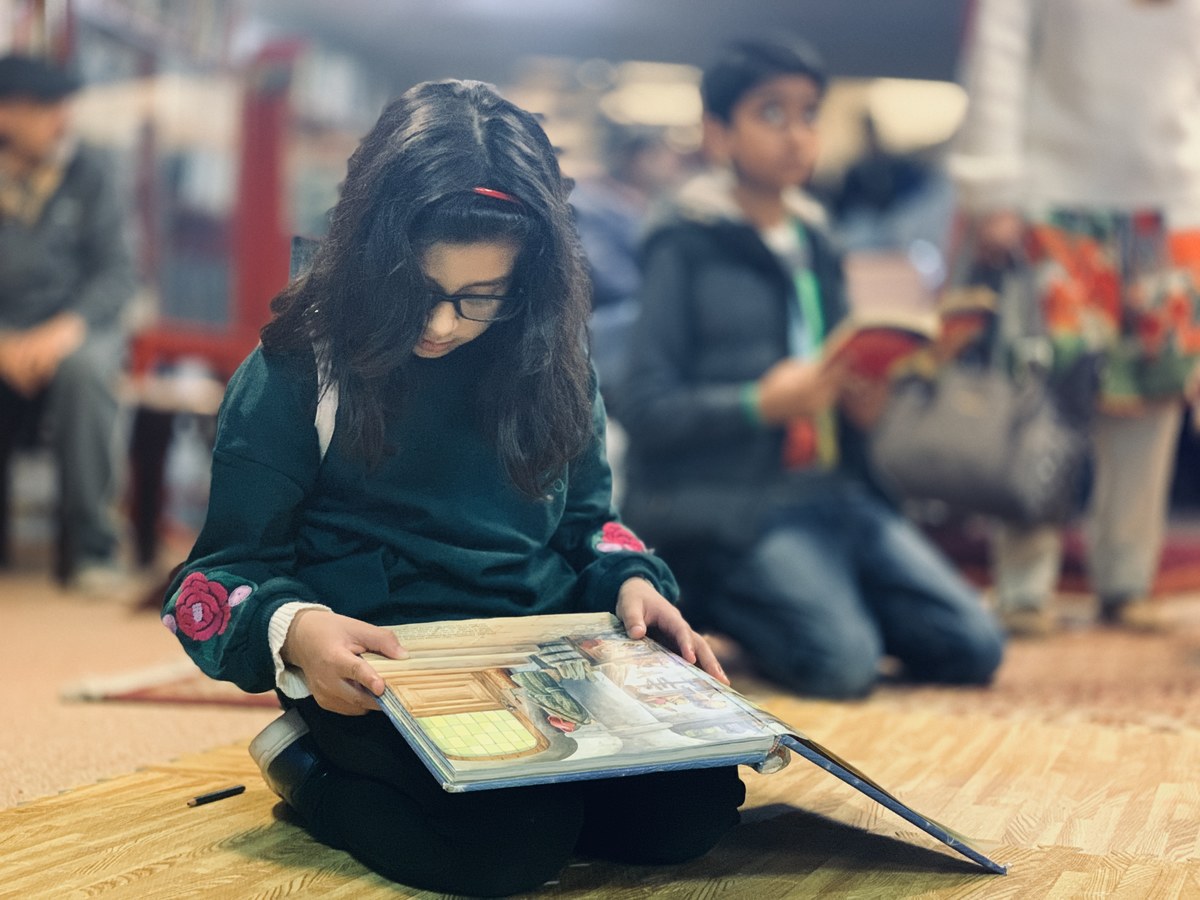ISLAMABAD: The presence of a Pakistani-Canadian blogger, Tamania, along with the country’s first female cartoonist, Nigar Nazar, was enough to attract children and their guardians in droves to the recently relocated Model Children’s Library at the city’s largest public park on Saturday.
The occasion that brought them together was a fun-filled storytime event that was organized by a group of Islamabad residents trying to rekindle reading interest among people.
Cognizant of the declining reading trend and the abysmal state of the federal capital’s little known public libraries, The Library Project initiated its efforts last year to restore nine state-owned libraries in the city by organizing a string of events to blend the pleasures of socialization and reading together.
“The importance of having this event here was to help children realize the joy of reading books at a library. This is a wonderful public resource we have here,” said Tamania, who has garnered fame on social media by highlighting the significance of reading in her blogs.

Children explore books at a storytime event organized at a library in Islamabad on December 21, 2019. (AN Photo)
She added that reading habits mostly developed in early childhood.
“When parents say their children don’t read, my first question is: Do you read?,” she told Arab News, adding: “It’s extremely important for parents to read, set a good example for children, and take them to libraries and bookstores. Research shows that even if you have a shelf full of books at home, its presence alone can raise the IQ of children.”
“The habit begins at home,” she continued, adding that people should volunteer and organize more reading activities instead of looking toward the government for support.

Children explore books at a storytime event organized at a library in Islamabad on December 21, 2019. (AN Photo)
The project’s founder and chief organizer of the event, Mehreena Aziz Khan, said the storytime was the first step to raise awareness that the city’s only children’s library had moved to a more accessible location.
Speaking to Arab News, Khan said: “This is a step the Department of Libraries, working under the Ministry of National History and Literary Heritage Division, has taken on our recommendation and we are very happy that it has materialized. But this library needs a lot of improvement, so we feel that the more citizens are involved and give their suggestions the more the authorities will be receptive to our claims and demands.”
Talking about her struggle and how she faced myriad of challenges to make the government understand the intricacies of running libraries in the digital age, Khan said that people mostly developed reading interest by getting encouragement and “socializing the act of reading is very important in this regard which is what we are aiming to do with these events.”
“The idea is that we have some very nice and talented local storytellers, bloggers, and writers. We should project their work and make it very engaging for our children to attract them to libraries. If the children associate libraries with fun and colorful events, where they can sing and interact and even have audiovisual elements such as cartoons and digital things which is a reality of today, the love for reading will automatically develop,” she added.
















